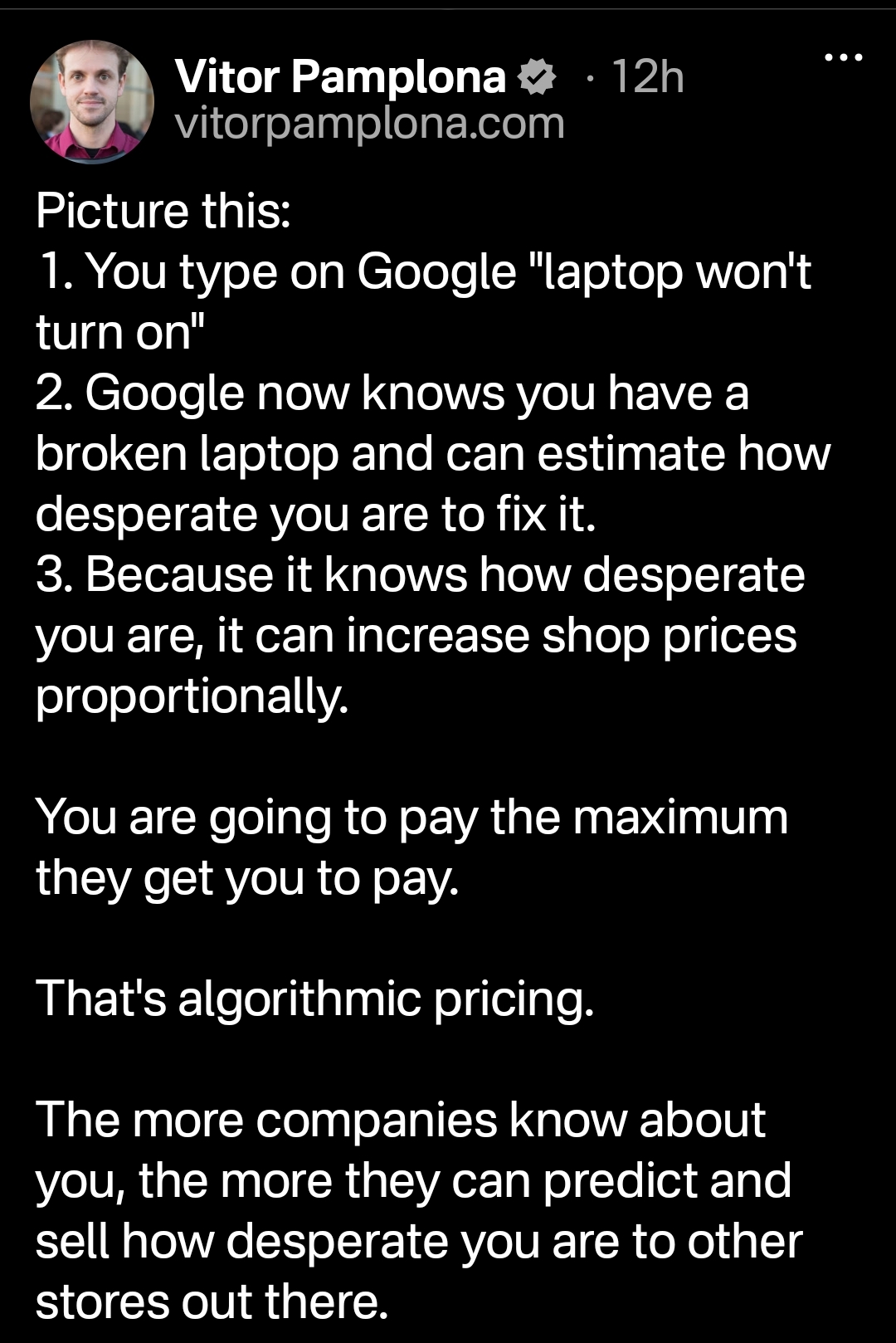this post was submitted on 15 Sep 2024
1395 points (97.3% liked)
Microblog Memes
6024 readers
1417 users here now
A place to share screenshots of Microblog posts, whether from Mastodon, tumblr, ~~Twitter~~ X, KBin, Threads or elsewhere.
Created as an evolution of White People Twitter and other tweet-capture subreddits.
Rules:
- Please put at least one word relevant to the post in the post title.
- Be nice.
- No advertising, brand promotion or guerilla marketing.
- Posters are encouraged to link to the toot or tweet etc in the description of posts.
Related communities:
founded 1 year ago
MODERATORS
you are viewing a single comment's thread
view the rest of the comments
view the rest of the comments


So... I don't think that's necessarily how it works, at least not in aggregate. The first issue is the market capture you mention: Amazon has a sort of "soft" market capture-- you're free to buy stuff from wherever, of course, but Amazon encourages customers to stay in their ecosystem, and also doesn't permit sellers to set prices lower off-site for products that they list on Amazon (e.g. if they want to have a sale on their own website, that sale price must be reflected on Amazon, too). Those are some of the ways that Amazon exerts "soft" market control, which we both recognize is enough for algorithmic pricing to work.
Google also has this kind of "soft" market control... And they are generally much wider-reaching than Amazon. For instance: You suggested that people will "shop around." How do people shop around? They probably use a search engine, and their search engine is probably Google. If Google was trying to interpret intent and guide their shopping decisions, why wouldn't they privilege companies using "personalized pricing" in the search results, and bury non-participating competitors? Similar things already happen with ads. So when the user "shops around a little bit," they are probably doing so in the context of the first page of Google results... Which, of course, Google is in control of.
Some people will clue in and search through other channels, or have retailers that they prefer, and visit directly... But many people will not bother/know to, just like they don't bother/know to check CamelCamelCamel for Amazon price history to see what the algorithms are doing. Sometimes it's lazy or complacent, but lots of the time they just don't understand that it's happening, or the degree to which it affects them.